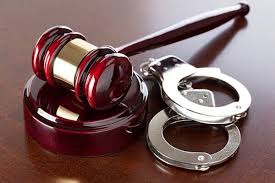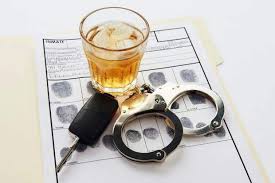When Should I Get An Attorney for a Car Accident
After an accident, car accident victims are often left to deal with serious injuries and rising medical bills on their own. Insurance companies often offer accident victims a low-ball settlement that is just a fraction of what they need to recover. These insurance companies don’t have your best interest in mind—the only people they have in mind are their shareholders and reducing their liabilities. They may pressure accident victims into signing a settlement too quickly and you could end up with less than you need to cover your injuries.
The moment your accident occurred, a clock started ticking. It’s a countdown to the first financial hit coming your way as a result of your injuries. For most folks, that first hit is a missed paycheck. Then the first medical bill comes in, and there won’t be just one. Pretty soon, you find yourself with a financial problem that you don’t know how to solve.
That’s why it’s important that you call one of our experienced car accident attorneys as soon as possible following your accident. This ensures that our team can collect important evidence and witness accounts that could be lost over time. It also allows our legal team to go to work quickly to build a strong case for you. The sooner you call, the sooner you can get the compensation you deserve for your accident.
Steps to Take After a Car Accident
Immediately after you are injured in a car accident, there are steps you can take to help you collect the compensation you need.
- Call 911 – Call 911 and report your accident, which helps alert both police officials and emergency medical teams to the scene of the accident. Your police report and your medical report will be invaluable when establishing fault and liability. Without them, it’s just your word against theirs.
- Gather Evidence – Gathering evidence can be done easily now that we have smartphones. Snap pictures of license plates, eyewitness information, vehicle damage, traffic patterns, intersections, and any other important information that could help your lawyer establish fault.
- Contact a Lawyer – Insurance companies will always seek to reduce their liabilities by offering accident victims a low-ball settlement offer. This is usually a fraction of what you need to recover. Contact an experienced car accident attorney immediately to begin building your case. Remember, contacting an attorney is not the same thing as filing a lawsuit.

You should hire an attorney to represent you after a car accident in these situations:
- You suffered injuries and/or significant damage to your car. If you were involved in a minor fender-bender that did not cause serious injuries, you may not need the assistance of a car accident injury attorney. But in all other circumstances, speaking with an experienced car accident injury attorney is the best way to protect your legal rights to recover compensation.
- It is obvious, or even just possible, that someone else’s actions contributed to causing the accident. Speak with an attorney about any car accident in which someone else’s actions may have played a role, including any accident involving more than one vehicle, and any accident involving a sudden, unexpected loss of control of your car.
- You’ve been offered a low-ball settlement by the other driver’s insurance carrier. It is important to speak to an attorney before ever agreeing to a settlement or making an official statement to a third-party insurance provider. Early after an accident, it is difficult, if not impossible, for you to have a clear and thorough understanding of the costs accident injuries might inflict on your life. Until an experienced attorney has helped you analyze the extent of the damages you have sustained, you risk accepting a settlement in your case that is much too low and will not fully cover the expenses you face now and in the future. Once you’ve accepted a settlement, you generally will not have the opportunity to go back and ask for more money.
- Your injuries are severe and permanent. Permanent injuries inflict a lifetime of expenses, including future surgeries, hospitalizations for complications, modifications to your home, and a decline in your earning capacity. Let an attorney help you obtain the money you need to pay for them.
- Your accident was caused by the negligence of a governmental agency. It takes skill and know-how to recover compensation from a local or state government entity as damages for the wrongful actions of its employees. Ask an experienced attorney who understands the complications of taking legal action against a government entity to help you.

The insurance company isn’t on your side like you think they are.
While we like to think that insurance companies have our best interests in mind, their first aim is to keep their own costs down and reduce overhead. This means that your interests and those of insurance companies may not always align. Hiring an attorney is one way to ensure that you have an advocate on your side to protect your rights.
Proving liability can be difficult.
Determining the party that was responsible for the accident can be hard. You will also have to prove that they breached the duty of care and that their breach resulted in your injuries. Hiring an experienced personal injury attorney who understands the law will increase your chances of being able to prove the necessary things in order to win your case.

What Compensation Can I Collect?
After an accident, there’s so much to be done – and much of it is costly. If you hire an attorney, they will fight for you to win the maximum amount of compensation possible. For instance, these expenses could be covered:
- Car repairs
- Doctor visits
- Hospitalization
- Rehabilitation programs
- Future medical costs
On top of that, you may be compensated for the time you missed from work, your pain and suffering, punitive damages, or any reduced earning capacity you may have suffered. Without a lawyer, it is much more difficult to win compensation for all you are owed. That is why we suggest that you make sure you have award-winning legal representation on your side.
Knowledge of Law and Procedural Rules
Hiring a personal injury attorney to represent you after a car accident means you will have a professional working for you — one who is extremely knowledgeable about the relevant laws and procedural rules that may affect your case.
An attorney can advise you of any time limits (called statutes of limitations) that can bar you from filing a lawsuit against the at-fault driver. For instance, in many states you must file your lawsuit within two years of your car accident or be forever prohibited from filing your lawsuit. An attorney will also be able to inform you about any special exceptions to the statute of limitations — for minors, for example.
Your attorney can file a lawsuit on your behalf and will know how best to mitigate any possible defenses raised by the other side. In addition, once your case gets under way, your lawyer will play an invaluable role in preparing your case for trial — and even going to trial if your case doesn’t settle.
Even though a lawsuit is rarely necessary, the threat of legal action offers strong leverage when negotiating a fair settlement.
Finally, and perhaps most importantly, having an attorney who is knowledgeable about the law evens the playing field, especially when you are going up against the experience and vast resources of a large insurance company.





